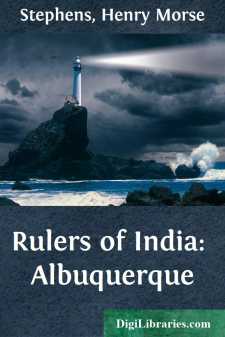Categories
- Antiques & Collectibles 13
- Architecture 36
- Art 48
- Bibles 22
- Biography & Autobiography 813
- Body, Mind & Spirit 142
- Business & Economics 28
- Children's Books 15
- Children's Fiction 12
- Computers 4
- Cooking 94
- Crafts & Hobbies 4
- Drama 346
- Education 46
- Family & Relationships 57
- Fiction 11828
- Games 19
- Gardening 17
- Health & Fitness 34
- History 1377
- House & Home 1
- Humor 147
- Juvenile Fiction 1873
- Juvenile Nonfiction 202
- Language Arts & Disciplines 88
- Law 16
- Literary Collections 686
- Literary Criticism 179
- Mathematics 13
- Medical 41
- Music 40
- Nature 179
- Non-Classifiable 1768
- Performing Arts 7
- Periodicals 1453
- Philosophy 64
- Photography 2
- Poetry 896
- Political Science 203
- Psychology 42
- Reference 154
- Religion 513
- Science 126
- Self-Help 84
- Social Science 81
- Sports & Recreation 34
- Study Aids 3
- Technology & Engineering 59
- Transportation 23
- Travel 463
- True Crime 29
Rulers of India: Albuquerque
Categories:
Description:
Excerpt
PREFACE
Affonso de Albuquerque was the first European since Alexander the Great who dreamed of establishing an empire in India, or rather in Asia, governed from Europe. The period in which he fought and ruled in the East is one of entrancing interest and great historical importance, and deserves more attention than it has received from the English people, as the present ruling race in India. Dr. A. C. Burnell, an authority second to none in Indian historical questions, says in his prefatory note to A Tentative List of Books and some MSS. relating to the History of the Portuguese in India Proper: 'In the course of twenty years' studies relating to India, I found that the history of the Portuguese had been shamefully neglected.... In attempting to get better information, I found that the true history of the Portuguese in India furnishes most important guidance for the present day, and the assertions commonly made about it are utterly false, especially in regard to the ecclesiastical history.' I purpose, therefore, to give a short list of the more important works on the history of the Portuguese in the East during the sixteenth century, while they were a conquering and a ruling power, in the hope that it may be useful to any one wishing to investigate the subject further than it has been possible for me to do in this volume. I confine myself to the sixteenth century and to books on political history, as I have not the knowledge to classify the numerous works on the history of the Roman Catholic Missions in India, which is closely bound up with the ecclesiastical history of the Portuguese in the East.
Before mentioning books of general history, I must draw attention to the Commentaries of Albuquerque on which this volume is chiefly based, as indeed all biographies of the great governor must necessarily be. They were published by his son, Braz de Albuquerque, in 1557, reprinted by him in 1576, and republished in four volumes in 1774. They have been translated into English for the Hakluyt Society by Walter de Gray Birch in four volumes, 1875-1884, and from this translation the quotations in the present volume are taken. The nature and the authority of this most valuable and interesting work are best shown by quoting the first sentence of the compiler's dedication of the second edition to the King of Portugal, Dom Sebastian. 'In the lifetime of the King, Dom João III, your grandfather, I dedicated to Your Highness these Commentaries, which I have collected from the actual originals written by the great Affonso de Albuquerque in the midst of his adventures to the King, Dom Manoel, your great-grandfather.' The Commentaries have been for three centuries the one incontestable printed authority for Albuquerque's career. But in 1884 was published the first volume of the Cartas de Affonso de Albuquerque, seguidas de Documentos que as elucidam, under the direction of the Academia Real das Sciencias de Lisboa, and edited by Raymundo Antonio de Bulhão Pato. This collection includes a large number of despatches to the King, dated February, 1508; October, 1510; April, 1512; August to December, 1512; November, 1513, to January, 1514; October to December, 1514; and September to December, 1515; of which two, dated 1 April, 1512, and 4 December, 1513, are of great importance, and veritable manifestoes of policy....


